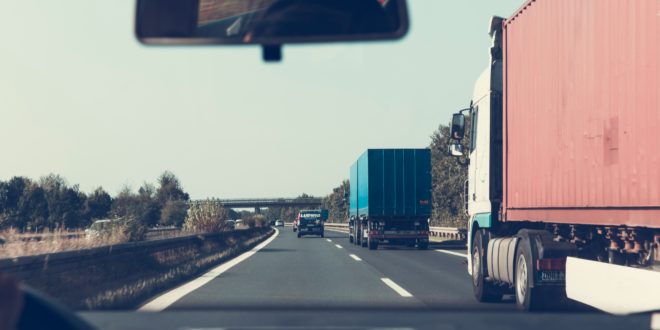The climate crisis has put an emphasis on switching to sustainable practices and green technology to reduce pollution. One way to do so is to focus on trucking. These vehicles consume a significant amount of fuel every year — switching to electric is a useful solution for the climate. However, this switch will have consequences for the agriculture industry.
Trucking and agriculture work together and rely on one another. Farmers need trucks for importing and exporting goods and equipment. They also need trucks for transporting items around the farm. From tractor-trailers to pickup trucks to yard trucks, each is necessary for agriculture.
These trucks produce a lot of emissions, though. In 2018, transportation was the biggest contributor of greenhouse gas emissions at 28%. Since trucks need more fuel than cars, they’re a major culprit of harmful emissions.
In some states, officials are taking action to effectively reduce this pollution. California, for instance, recently announced its goal of phasing out new gas-powered vehicles by 2035. Though this decision will benefit the environment, the agriculture industry will see repercussions.
Impacts and Setbacks
The agriculture industry relies on various trucks and other necessary equipment to operate efficiently. California’s recent move toward electric vehicles is a sign of what’s to come for the industry — it will need to adapt, or else businesses risk failing.
Cost is the main concern amongst farmers and truckers. Electric vehicles have a reputation for being more expensive than standard gas-powered cars. While tractor-trailers can reach the $200,000 range, they are typically less expensive than that. Workers fear that electric trucks will be too expensive to afford, and farms will ultimately go out of business.
The news comes in the middle of the COVID-19 pandemic, a time when agriculturists have already taken a significant financial hit. Throughout 2020, the industry may see a total of $8 billion or more in losses. The pressure to switch to electric vehicles in the next 15 years may add to this loss.
The trucks are not the only things threatening a cost increase, though. With electric vehicles comes the need for power. Charging stations, batteries, electricity lines and barn retrofits will be additional expenses that farmers must allocate funds for.
A truck with zero emissions may be hard to come by, too. Trucks in the farming industry sometimes need to travel great distances that electric vehicles can’t endure. States must implement charging stations and rest stops across highways to account for these driving distances.
Still, the industry needs a solution it can afford that will decrease emissions.
Finding a Balance
The environment and the agriculture industry are at stake. Electric trucking seems to be the right balance on a surface level. However, with the costs adding up, agriculture workers aren’t sure they can help protect the environment while keeping their farms afloat.
Instead, policymakers and truck manufacturers must find a compromise that works on all levels. For instance, pure electric battery trucks may last 50-100 miles, which isn’t enough for truckers, especially if the costs make these vehicles an unworthy investment. Improving upon electric trucks made for agriculture is one solution.
Bollinger Motors’ electric truck models are an example of progress. Manufacturers designed the B1 and B2 models with farm needs in mind. These vehicles have a 200-mile charge and will likely sell for about $100,000 — which is around the same price as typical yard trucks.
Another option is the fuel cell electric truck. These trucks create electricity by converting hydrogen and air. In theory, these trucks have high potential and could possibly reach 400 miles in range. Using fuel cell electric trucks could save 6,000 gallons of diesel fuel every year.
If the issue of cost still remains prominent, policymakers and truck manufacturers must work out deals and partnerships for the agriculture industry to help it survive through this transition.
A Cleaner Industry
States and agriculturists ultimately have the same goal — continue business sustainably. Electric trucks provide that solution, but farmers need more assistance in transitioning to green vehicles. Then, both parties can work toward a more sustainable future.


